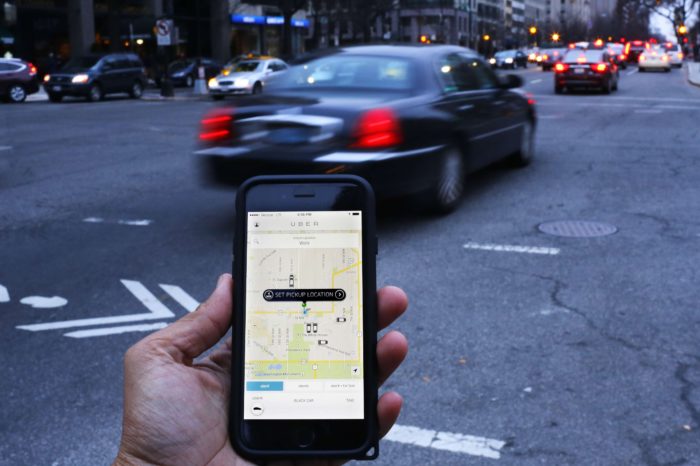Study: Uber, Lyft, Shouldn’t Be Subject to Same Restrictions That Have Harmed Taxis
Watch an interview with the author on BNN News:
BOSTON – Rather than apply rules that have led to higher costs and lower quality in the taxi industry, Massachusetts should strive to balance adequate customer protections with the flexibility transportation network companies (TNCs) like Uber and Lyft need to do business in the commonwealth, according to a new Policy Brief published by Pioneer Institute.
In “An Uncertain Future for Ridesharing Services in Massachusetts,” author Matt Blackbourn notes that three bills are currently pending in the Massachusetts Legislature that would create a regulatory structure for TNCs; two attempt to address customer safety concerns without imposing burdensome regulations, but a third bill includes at least one poison pill.
The three bills discussed outline comprehensive plans to regulate insurance coverage, employee screening and permitting of TNCs. A fourth bill, S.559 from Sen. James E. Timilty, is also being considered by the legislature but was not a focus of this study because it addresses insurance coverage exclusively.
Nearly half the states and Washington, D.C. have adopted legislation to regulate TNCs. Most include provisions requiring that the company or driver provide at least $1 million in insurance coverage that takes effect from the time a driver is available to field trip requests.
But H.3702, sponsored by Sen. Linda Dorcena Forry and Rep. Michael Moran, would require companies or drivers to carry a $1 million commercial insurance policy that would be in effect at all times. Such a provision would eliminate any reasonable opportunity for TNCs to continue doing business here.
“The cost would be prohibitive,” said Pioneer Institute Executive Director Jim Stergios. “Especially when you consider that a majority of Uber drivers, for example, drive 15 hours per week or less, and nearly half have separate full-time jobs.”
Dorcena Forry and Moran wrote in The Boston Globe that their bill would ensure that TNCs comply with the “same regulations that apply to every other form of transportation in our state.” But many Boston taxi companies carry only the minimum bodily injury coverage ($20,000 per person and $40,000 per accident).
As they work to adopt appropriate TNC regulations, legislators should also strive to reform the taxi industry, which a 2013 Globe spotlight series exposed as rife with oligopolistic practices, worker exploitation and resistance to adopt changes urged by customers. As a result, taxi ridership in Boston is down by 22 percent this year alone.
Rather than maintaining a system that insulates taxis from reform, the legislature should re-examine existing taxi regulations and consider changes that would modernize the industry. The proposed changes would create an incentive for cab companies to adopt features like user-friendly mobile-based applications, pricing transparency, systems that allow drivers and passengers to rate each other, and automated payment systems that eliminate the need for person-to-person transactions. These reforms would allow taxis to remain competitive by improving service quality and reducing prices.
Matt Blackbourn is Pioneer’s Research & Operations Associate. Matt manages Pioneer’s Better Government Competition outreach effort, and its internship program. He is also involved with the Institute’s government transparency initiative and assists with research for the Center for Better Government. Matt holds a Bachelor of Arts in Political Science and Philosophy from Tulane University, where he was elected to Phi Beta Kappa and graduated summa cum laude.
Pioneer Institute is an independent, non-partisan, privately funded research organization that seeks to improve the quality of life in Massachusetts through civic discourse and intellectually rigorous, data-driven public policy solutions based on free market principles, individual liberty and responsibility, and the ideal of effective, limited and accountable government.



